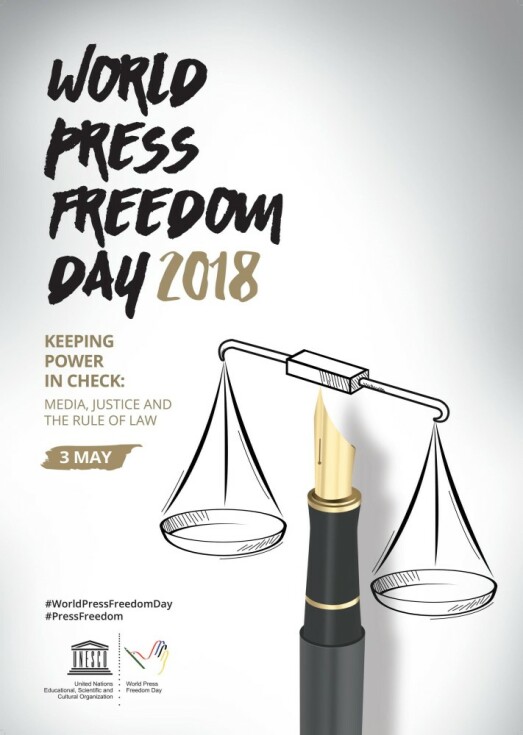Every year, 3 May is celebrated worldwide as World Press Freedom Day, a day set aside by the United Nations to raise awareness about the importance of the fundamental principles of press freedom and as a way to pay tribute to the courage and commitment of the many individuals and media outlets who endure violence, prosecution, or economic pressure simply for reporting in the public interest.
This year’s celebration highlights the role of the media in promoting the rule of law and fostering transparency. The theme recognizes the significance of the UN’s Sustainable Development Goal 16, which targets the promotion of peaceful and inclusive societies for sustainable development, the provision of access to justice for all, and building effective, accountable institutions at all levels – a goal that is not attainable without the press freedom.
Since 1995, Media Development Investment Fund has witnessed countless instances of independent media helping to curtail corruption and enhance the accountability of governments and businesses. As society’s watchdog, the quality press not only monitors abuses of power, it also holds authorities to account for their promises and how they implement policies. By unearthing stories that otherwise would remain untold, the media erode impunity and promote integrity, at the same time empowering citizens to demand justice.
In order to highlight the importance of independent journalism in keeping power in check and to mark World Press Freedom Day, we would like to share powerful examples of how MDIF-supported media fostered transparency and accountability in the past year:
- In a joint project with the Independent Electronic Media Association (ANEM), Insajder carried out a year-long investigation that uncovered fraud in public sector companies in three Serbian cities. Its series “Insajder locally” exposed how managers were appointed along political party lines and how managers of public companies made deals with private companies without public bids. Not long after the airing of the show, the former head of the city of Zajecar, was arrested on suspicion of abuse of power and infringement of the public procurement law, which cost the city thousands of euros.
- Liga reported on illegal schemes operating between Ukraine and the occupied territory of Donbas. The investigation found that on both sides of the border – Ukrainian and Russian – there are business people with political patronage who earn millions from the illegal trade in coal, even though all trade with the Russian-occupied areas was outlawed by Ukrainian President Petro Poroshenko. Although it is impossible to prove direct causation, some of the companies named by Liga were later placed on the sanctions list formed by Ukraine’s National Security and Defense Council.
- In India, milk producers’ cooperatives have been weakened as administrative control over them has shifted from the cooperatives’ leaders being accountable directly to farmers’ collectives to regional officials and party politicians. Scroll’s two-part series investigated how centralisation of power has affected the cooperatives, leading to increasing corruption and decreasing accountability. Four months after the publication, the top executive of one of the cooperatives resigned amidst allegations of rigged tenders. Although it is not possible to draw a direct link between Scroll’s stories and the resignation, undoubtedly Scroll’s articles prepared the ground by lifting the lid on the scandal and opening a discussion about misdoings in the sector.
- With the aggressive expansion of China in Latin America, Ecuador has been among the main destinations for Chinese financing. In recent years, seven out of 10 public works contracts have been awarded to Chinese companies, and almost always tied to financing by a Chinese bank. GK.city published a report that explored how Chinese companies have secured contracts in Ecuador, in many cases with irregularities and missing proper contracting procedures. Following the report, the General Comptroller of the State, the highest control office in Ecuador, opened an investigation into irregular Chinese company contracts with Ecuador.
